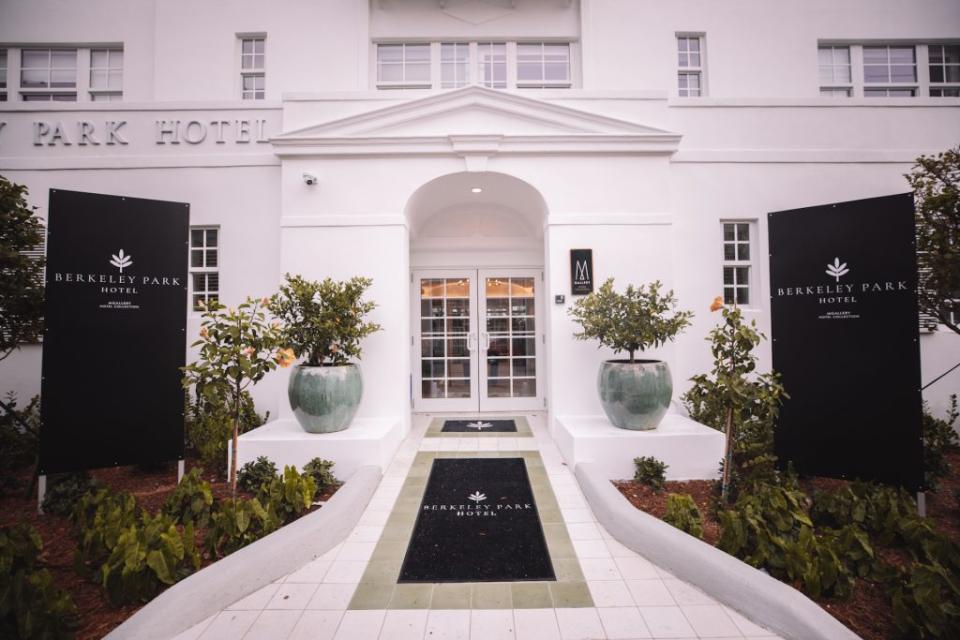Accor’s Recovery Fueled by Asia’s Zero-Tolerance Covid Policies

The Asia Pacific region, led by China, fueled much of the global hotel industry’s recovery from the pandemic. But stringent virus containment measures in that part of the world have one hotel company touting other regions for its growth trajectory.
Accor delivered a third quarter performance snapshot Wednesday, with company leaders emphasizing strong performance in Europe, the Middle East, and the Americas. The leisure-led recovery momentum in these regions stems from summer travel demand as well as select international borders reopening.
Pointing to Europe and the U.S. as signs of strength is surprising for Accor given Europe lagged the U.S. and China on recovery due to its greater reliance on long-haul travel. The company also isn’t known for having a significant presence in the U.S. beyond the Fairmont brand and some of its luxury and lifestyle hotels catering to more local residents. Accor CEO Sebastien Bazin just last month at Skift Global Forum noted, “I wish I could be much bigger in America. We tried and we failed.”
But the erratic recovery seen in China in recent months as well as Australia’s round of lockdowns in light of new cases mean a new growth story is needed. Accor leaders were cautious on providing much in the way of a recovery forecast beyond saying they felt the worst is in the rear-view mirror.
“There is a reason nobody is giving [revenue per available room] guidance, because everybody got burned,” Jean Jacques-Morin, Accor’s deputy CEO, said on an investor call. “At the end, we do two steps forward and one step back, but we are moving in the right direction.”
Accor, which is based in France and only required to give profitability specifics on half-year and year-end reports, posted roughly $684 million in revenue — a 79 percent jump from last year but still 40 percent off 2019 levels.
Business travel demand picked up in September, and there has been an initial recovery of meetings and events — though, that sector is still only between 40 and 50 percent of pre-pandemic levels, Morin said.
The company’s revenue per available room, the industry’s key performance metric, jumped 20 percent from the second quarter largely due to strong summer leisure travel demand and accompanying rates in France, the UK, the UAE, and the U.S.
“These [recovery] trends are expected to persist out to the end of the year,” Accor CEO Sebastien Bazin said in a statement. “People are very keen to travel again.”
Eyes on APAC
The setback in select Asia Pacific markets thwarts some of Accor’s recovery momentum. While the company highlighted the U.S. as one of its areas of strength, it can’t rely on such a market where it has a significantly smaller presence relative to competitors like Hilton and Marriott.
The outbreak of new cases in Australia and China were significant drags on Accor and come after several quarters of the company, and greater hotel industry, pointing to markets like these with tough virus containment measures as the fast way to get to the other side of the pandemic.
Now, there are growing concerns such zero-tolerance policies are simply unrealistic while the rest of the world begins to reopen.
“From the month of July to August, China lost 50 points of RevPAR,” Morin said. “Between June and August, it was probably 40 points coming down in Australia. Was I predicting that? No. That’s why I’m cautious again.”
The company remains optimistic on how the region can perform, especially with countries like Thailand beginning to reopen to foreign travelers. Like Hilton leaders said earlier on Wednesday, Morin isn’t giving up on China as a source of future growth.
Accor still has a partnership with Chinese hotel company Huazhu, one the Paris-based hotel conglomerate sees as a crucial way in beefing up its presence in the country. The Huazhu partnership enabled Accor to open more hotels in China in the last four years than it did in the prior 40, Morin said.
“China is a huge market. There is a lot of potential in China,” he added. “You’ve got to figure out what is the right partner to do business with, and, right now with Huazhu, we have a strong partner.”
Subscribe to Skift newsletters for essential news about the business of travel.
